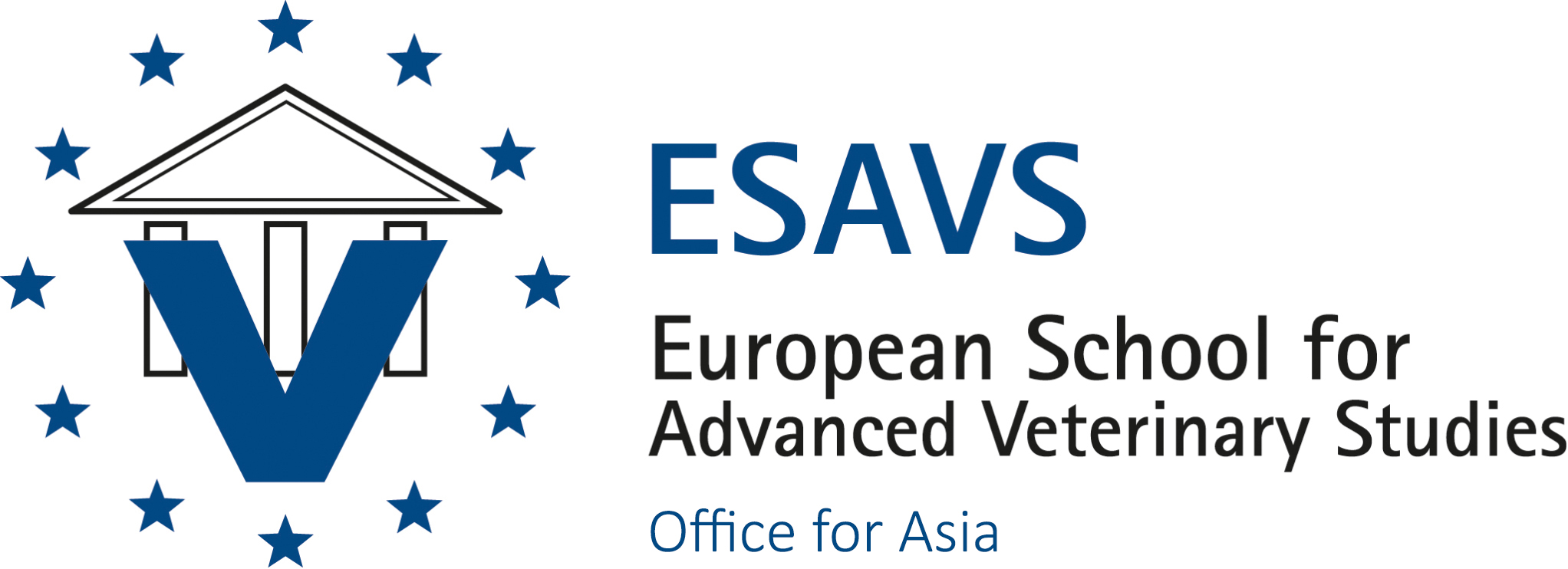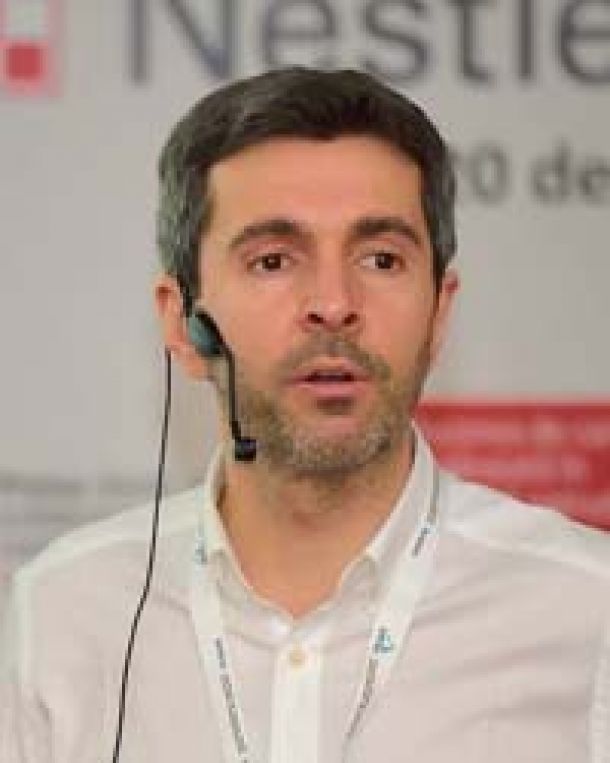Internal Medicine 8:
Basic Oncology and Neurology
10 - 14 May 2021 TBA, 2024 | China
General Overview
General Overview
The program of the Internal Medicine Course is created to give the chance to participants to deepen their knowledge in medical sciences of companion animals. The courses will be at an advanced level, in case-oriented and problem-solving approaches; each week will focus on a specific “discipline” of small animal internal medicine in order to give to attending veterinarians basic as well as advanced competences in most important topics of the daily practice. By attending to all courses, the participants are expected to achieve an adequate level of skills to be able to solve problems in the most important medical sciences, including all disciplines that are closely interconnected to internal medicine, such as oncology, cardiology, neurology and intensive care.
The complete training programme consists of seven periods of 5 days each; the entire programme will be given from 2018 to 2024. International guidelines and most recent scientific literature will be discussed in lectures, cases will be given to participants in practical sessions; attending vets will be fully responsible to find adequate management plans and reach the diagnosis in practical sessions. Theoretical and practical sessions will allow participants to achieve a level of knowledge and expertise that capacitate them to manage medical cases.
Specific Overview
Part 1: Oncology
Cancer is the number 1 reason of death in pets and the most frequent diagnosed disease: often death is due to advanced diseases or aggressive tumours, however sometimes that can be avoided by promptly recognizing cancer signs and offering therapies with effective communication. Therefore, it is mandatory for veterinarians nowadays to have a basic understanding of cancers, their biology and the different types of therapies available in veterinary medicine, including palliative care. It is also important to be able to deal with the emotions of owners of oncological patients in order to give the best possible care.
The present module of Oncology is devised to provide the practitioner with an overview of biology of cancer, the most common signs that leads to the suspicion of it (e.g. paraneoplastic syndrome), the concepts of staging and tips for effectively communicating with overwhelmed owners. Moreover, the course will give a broad overview of the most encounter cancers in private practice. Practical sessions will be interspersed in the lectures to allow participants to apply the theoretical knowledge acquired and discuss with the lecturer.
Part 2: Neurology
Neurological disorders often present with severe clinical signs and need to be rapidly recognized and treated to obtain a positive outcome. Sometimes, the presenting clinical signs may overlap with those of disorders of other organs, and combining the inputs from internists and neurologists can be crucial for the correct approach to these cases. Neurological disorders can be the consequence of metabolic/systemic diseases, be the cause of autonomic signs such as regurgitation, urinary and gastrointestinal dysfunctions or also represent an underlying predisposing factor for diseases such as aspiration pneumonia or urinary tract infection.
With this course you will learn how to recognize the presence of neurological signs in your patients, how to correctly localize them within the nervous system and how to provide a list of differential diagnoses. Furthermore, you will be provided with an overview of pathophysiology, diagnosis and treatment of the most common diseases in veterinary neurology.
Objectives
At the end of this course, the participant will be able to:
- Know the main concepts of cancer biology, cancer types and their behaviors;
- Understand the meaning of cancer staging and the TNM and WHO staging systems
- Be able to effectively communicate with the owners of cancer patient, deal with delivering bad news without losing hopes.
- Interpret basic cytology of tumours and understand more advanced techniques in oncology such as flow-cytometry and PARR
- Decide a good palliative care plan for those patients with very advanced diseases or when the owner declined further treatment
- Understand the mechanism of action of chemotherapy and the main chemotherapy classes
- Learn how to calculate a chemotherapy dose and deal with the potential adverse events
- Have a basic knowledge of frequent tumours of companion animals and their therapies: lymphoma, mast cell tumour, hemangiosarcoma, mammary tumours.
- Recognize the presence of neurological signs in a patient;
- Localize the problem within the nervous system;
- Provide an appropriate list of differential diagnoses;
- Improve the clinical approach to the most common neurological diseases based on a better knowledge of their pathophysiology and of the mechanism of action of the most commonly used drugs.
Prerequisite
The module will provide basic and more advanced information about oncological and neurological disorders and it is suitable for more and less experienced veterinarians willing to deepen their knowledge in these topics.
Language
All modules will be held in China, in English language with consecutive translation in Chinese.
CPD Hours: 40
ECTS credits (Master & Certificate): 3
Tuition Fee: TBA
Course Language: English with consecutive translation in Chinese
Day 1
09:00-11:00 The big question: what is cancer and how can we fight it? Principles of cancer therapy
11:00-11:15 Coffee Break
11:15-13:00 Effective communication: delivering bad news
13.00-14:00 Lunch Break
14:00-15:30 Basic cytology in veterinary oncology
15.30-17:00 Interactive exercises of chemotherapy calculation and cytology
Day 2
11:00-11:15 Coffee Break
11:15-13:00 Induction chemotherapy protocols for canine lymphoma
13:00-14:00 Lunch Break
14:00-15:00 Rescue chemotherapy protocols for canine lymphoma
15:00-16:00 Feline alimentary lymphoma
16:00-17:00 Interactive cases
Day 3
09:00-11:00 The X factor: presentations of mast cell tumours and therapeutical algorithms
11:00-11:15 Coffee Break
11:15-13:00 Canine visceral hemangiosarcoma: how to deal with it
13:00-14:00 Lunch Break
14:00-15:30 The neurological examination: am I doing it right?
15:30-17:00 Neurolocalization and differential diagnoses: practical session with videos
Day 4
11:00-11:15 Coffee Break
11:15-13:00 Not all that quacks is a duck: recognizing disorders mimicking epilepsy
13:00-14:00 Lunch Break
14:00-15:30 Meningitis, encephalitis and myelitis: the “own goals” of the immune system
15:30-17:00 Central nervous system neoplasia: is it a lost battle?
Day 5
09:00-11:00 Spinal cord injuries: intervertebral disc hernias and more
11:00-11:15 Coffee Break
11:15-13:00 The outskirts of the nervous system: introduction to neuropathies, junctionopathies and myopathies
13:00-14:00 Lunch Break
14:00-15:30 Management of the patient with head trauma: between truth and myth
15:30-17:00 Pediatric neurology: how do our differentials change?
Prinicipal Course Master
Course Masters
Dr. Lorenzo Mari
Dipl. ECVN (IT)
Istitutio Veterinario di Novara, Italy
Dr. Chiara Leo
Msc., FHEA, Dipl. ACVIM (IT)
Italy
Course Location
Small Animal Hospital Chulalongkorn University, 254 Phayathai Road, Pathumwan, Bangkok 10330, Thailand
Registration and Fees
Discount tuition fee for Thailand, Indonesia, Philippines, Malaysia, India, Sri Lanka, China, Pakistan, Lebanon and Vietnam: EURO 1.450,–
Early registration: Euro 1.350,--
(Deadline for FULL early registration payment: 13 June 2022)
Discount tuition fee for Macao, South Korea and Taiwan: EURO 1.850,–
Early registration: Euro 1.750,-
(Deadline for FULL early registration payment: 13 June 2022)
Tuition fee for Europe, Singapore, Hong Kong, Australia, New Zealand, United Arab Emirates, Canada, USA and Japan: EURO 2.250,–
Early registration: Euro 2.150,-
(Deadline for FULL early registration payment: 13 June 2022)
Related Courses
| Internal Medicine 6: Immune-mediated and Hematologic Diseases, and Coagulopathies (Course 6/9), Xi'an/China, Dr. Porporato & Dr. Rossi | 26. - 30. May 2025 | |
| Internal Medicine 7: Infectious Diseases in Dogs and Cats (Course 7/9), Shanghai/China, Dr. Rossi | 01. - 05. Dec 2025 |
For payment via Bank Transfer or Paypal please contact the ESAVS Office for Asia:
If you have any questions regarding the registration or any other further details for the courses in Asia please contact the ESAVS Office for Asia:



